The wild life of Alexey Navalny, who challenged Putin and appears to have died in prison
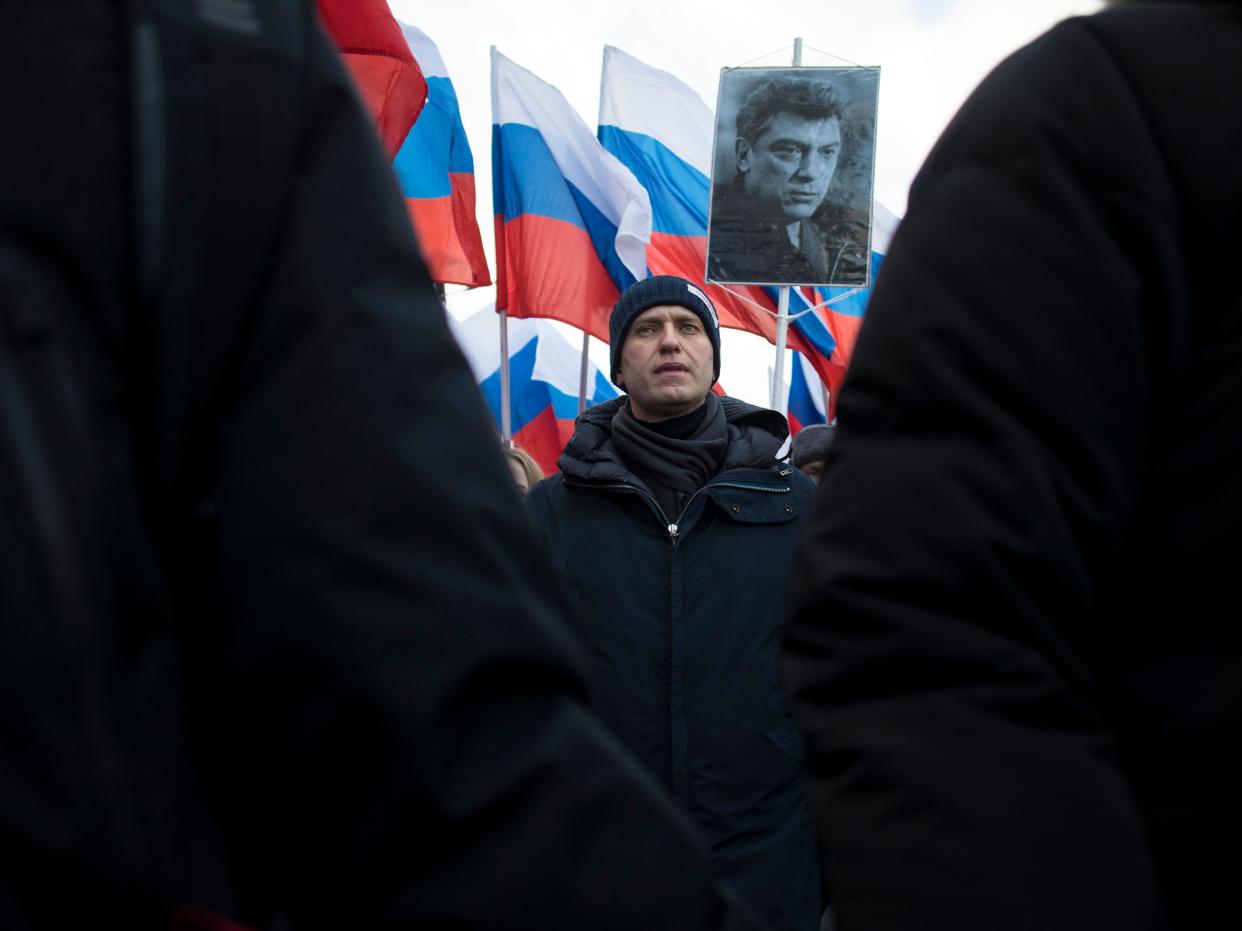
- Oops!Something went wrong.Please try again later.
- Oops!Something went wrong.Please try again later.
Russian dissident Alexey Navalny became President Vladimir Putin's biggest opponent.
He campaigned against fraud and corruption and ran in elections before he was jailed.
On Friday, Russian officials said he had died suddenly in prison.
Alexey Navalny, an outspoken critic of Russian President Vladimir Putin, has died in prison, according to Russian officials.
Navalny, 47, had been a thorn in Putin's side for years — first as an anti-corruption blogger, and later as an independent politician running and campaigning in local and national elections.
Navalny often used humor to take on Putin. He dubbed Putin's political party United Russia "the party of Crooks and Thieves," and called Putin "a thieving little man in a bunker."
In 2020, Navalny almost died after he was poisoned with a nerve agent, allegedly by Russian agents. He was flown to Germany for treatment.
Once he recovered, Navalny returned to Russia knowing he would likely be imprisoned. He was locked in a remote penal colony that's typically reserved for those accused of violent crimes and incarcerated people serving life terms.
Russia's prison agency said on Friday that he had died suddenly.
Alexey Navalny was born on June 4, 1976, in Butyn, a town west of Moscow.
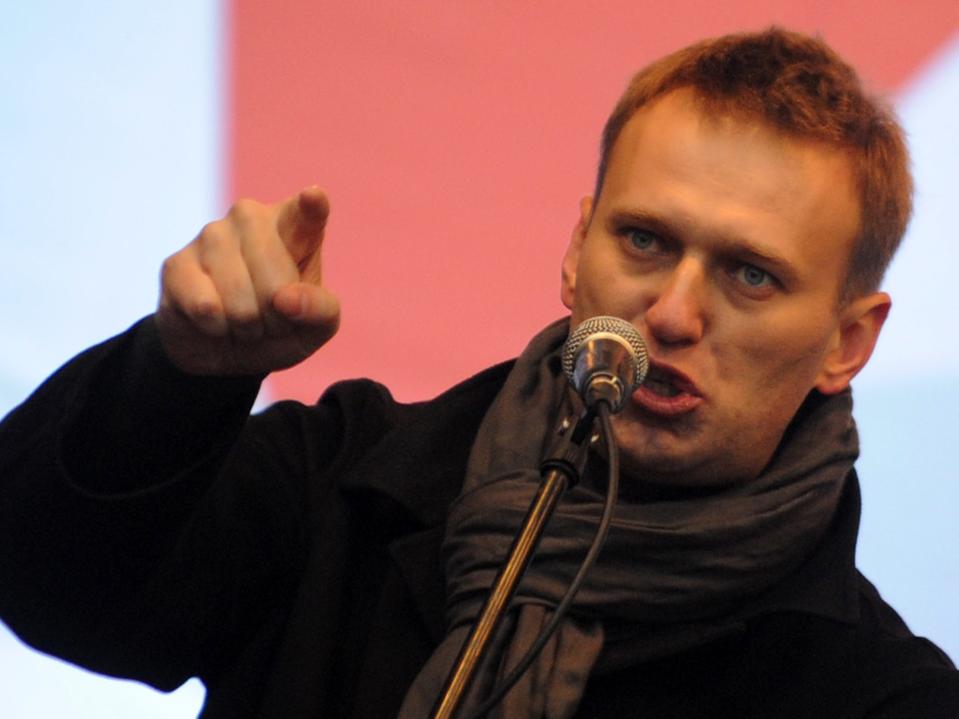
Navalny's father was a Red Army soldier, and his mother was an economist.
Until he was 10, he spent his summers with his grandfather, who lived in the countryside near Chernobyl. But that came to an end in 1986 after the Chernobyl nuclear disaster.
As he grew up, his family moved between military towns in the Moscow area.
After failing to get into Moscow State University, Navalny went to Peoples' Friendship University of Russia where he studied law. He graduated in 1998.
He wasn't particularly fond of his university education and found it uninspiring, recalling he once put $50 in the exam book to get a passing grade.
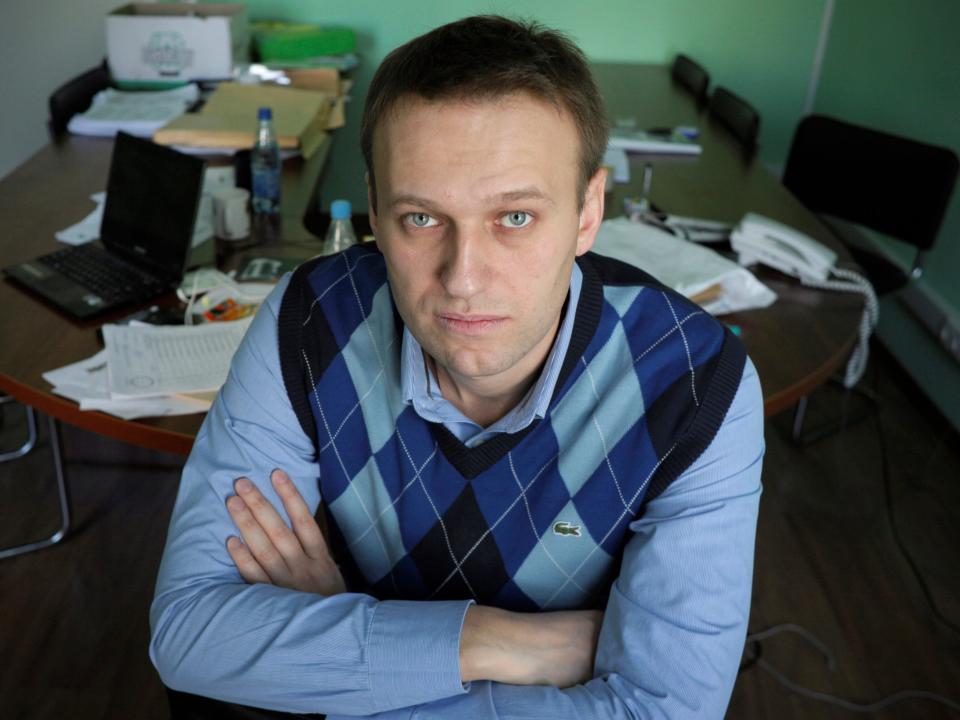
He later earned a degree in economics, graduating in 2001.
Navalny got his first taste of corruption working as a real estate lawyer.
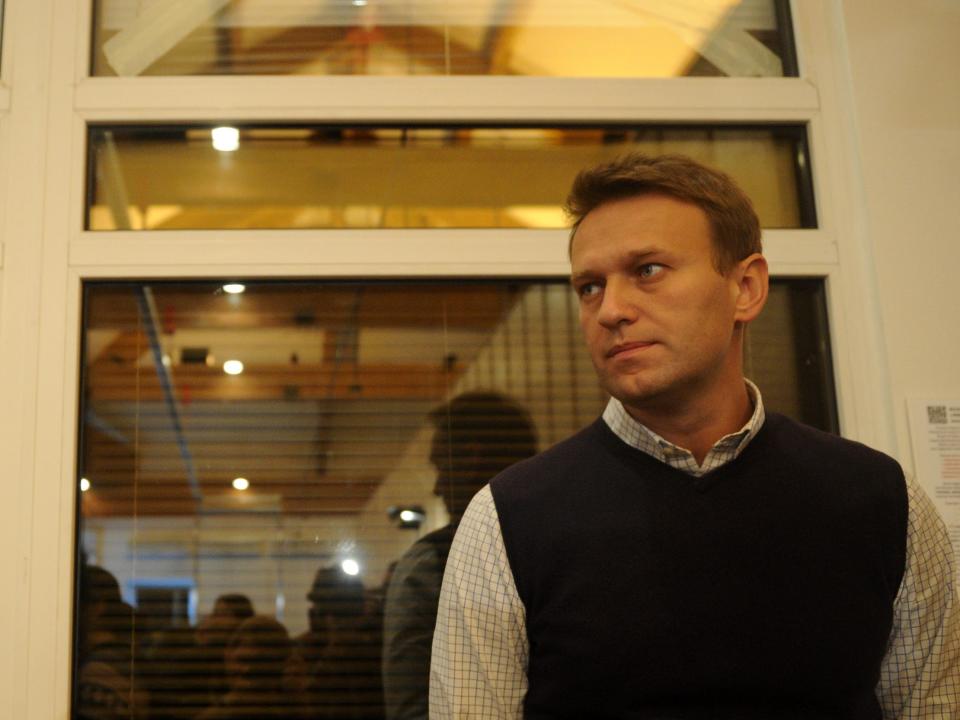
"Working there taught me how things are done on the inside, how intermediary companies are built, how money is shuttled around," he told the New Yorker in 2011.
During this period of his life, Navalny's friends described him as a right-wing "punk."
In 1999, Navalny joined the Yabloko party, a liberal group his mother supported that formed after the Soviet Union collapsed.
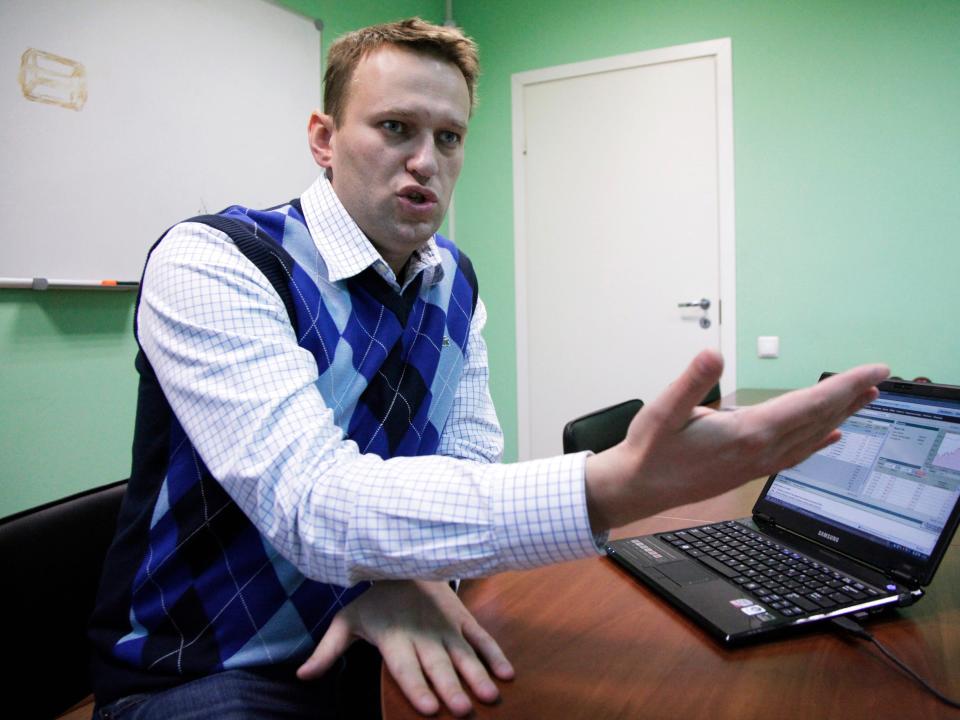
The following year, Vladimir Putin was elected president. Soon after, debates and elections became infrequent and Yabloko became less relevant.
Regardless, Navalny wasn't impressed with Yabloko's internal politics.
He later told the New Yorker the party struggled to reconcile "normal people" and a radical group who had been political in the 1980s before the Soviet Union collapsed.
Navalny clashed with the party when he posted several controversial videos, including a 2007 pro-gun rights video.
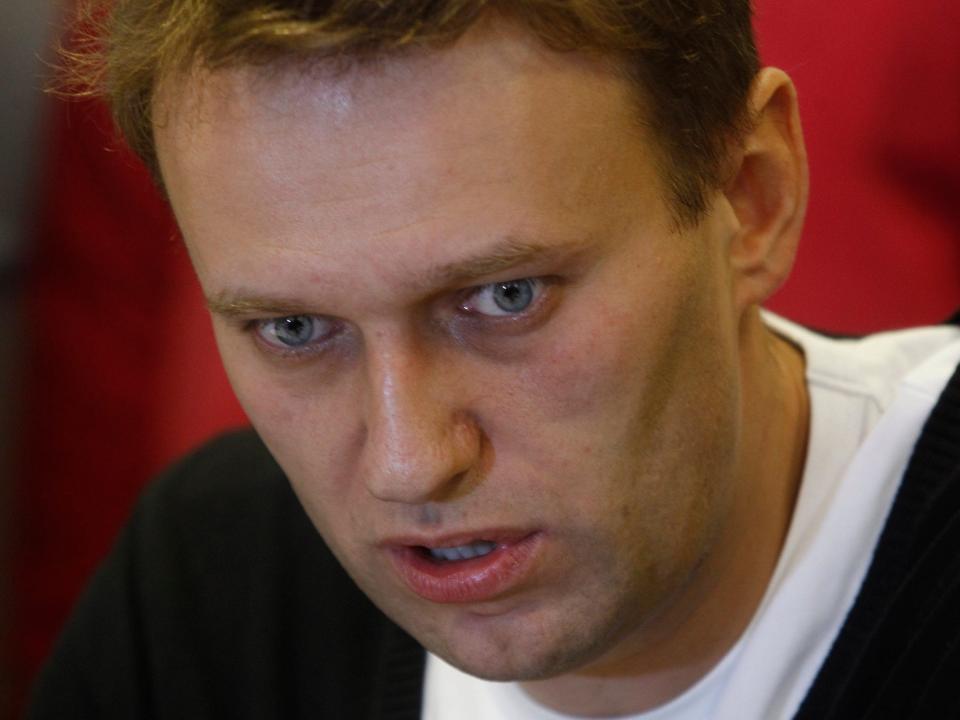
In the video, he pretends to shoot an actor wearing a kaffiyeh who runs up to attack him.
In 2007, Navalny was kicked out of Yabloko.
Party members said it was because of his "nationalistic activities." He had also gone to nationalist marches that were attended by uninvited neo-Nazis. He argued it was worse to ignore the movement and that these events had regular people, too.
His reasoning was later summed up by Daniel Roher, who directed the documentary, "Navalny."
Roher told NPR Navalny had said, "How can I afford to alienate these crazy guys? Their goal is to get Putin out of power. And my goal is to get Putin out of power. Fine. We might as well join forces."
In 2008, Navalny began to make a name for himself as an anti-corruption blogger.
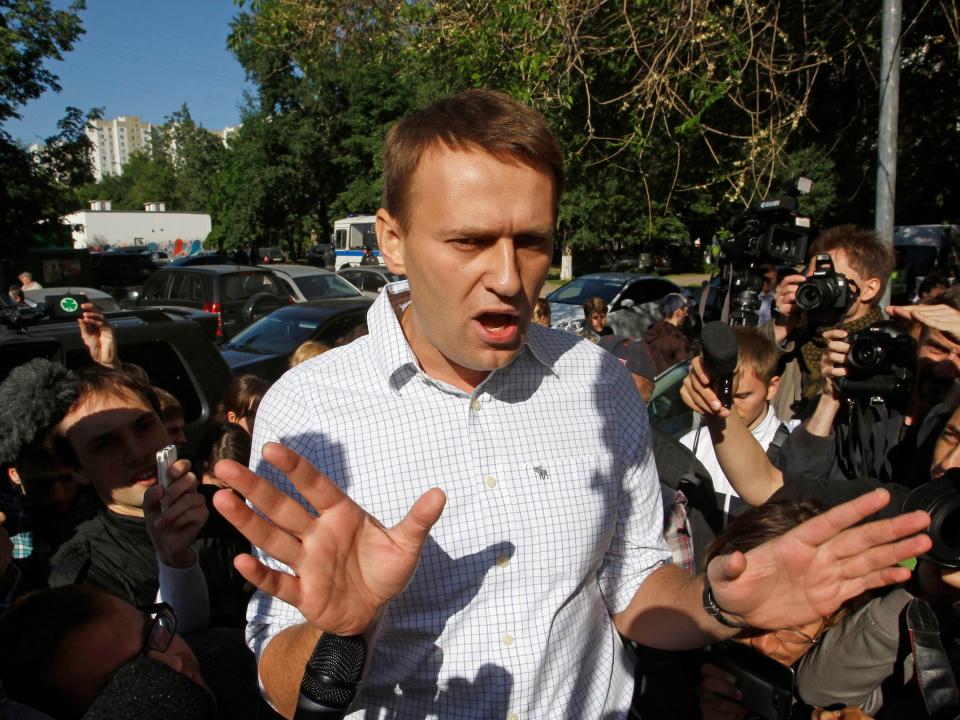
He used data and "relentless, paint-stripping contempt" to attack the government, as described by The New York Times.
It helped that Russia was experiencing an internet boom at the time. By 2011, a quarter of Russian families had broadband internet.
Navalny's videos were popular with a younger audience, attracted not by his ideology "but the confident challenge he mounts to the system," The New York Times said in a 2011 profile.
He started buying stocks in state-owned companies, including oil and gas monopolies, so he could ask questions as a shareholder and see how the companies worked from within.
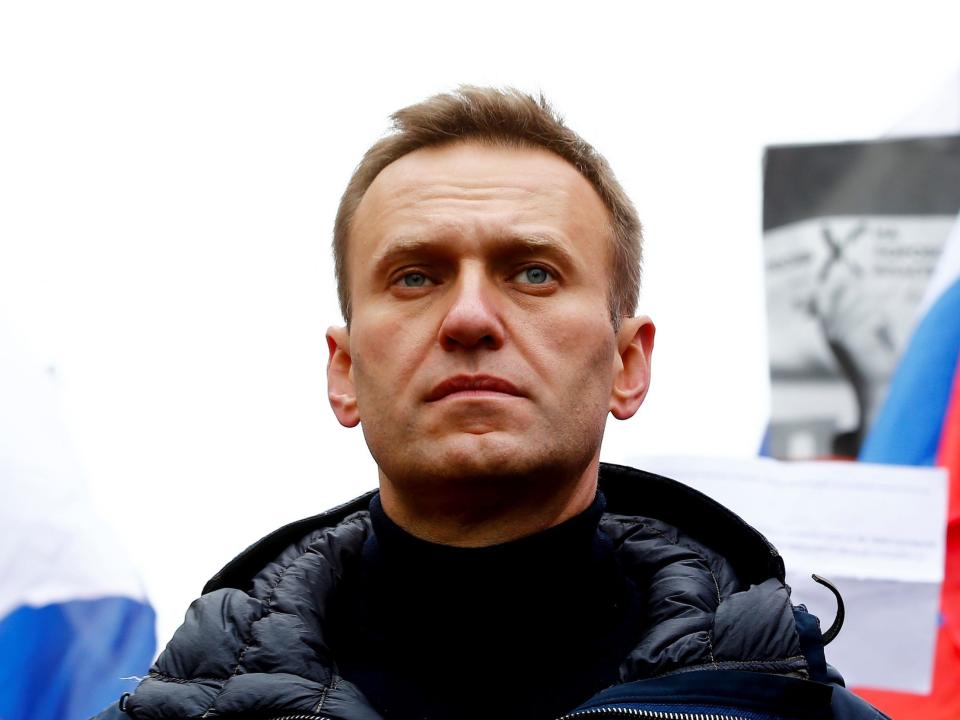
He soon found discrepancies. One company barely provided dividends but had donated $300 million to "charities" that no one could see. In another state-owned oil company, he discovered a $4 billion government corruption scheme.
His report received one million views on the day it was published.
When other companies refused to provide shareholder information, he sued them, and then republished the information on his blogs.
Navalny was aware of how dangerous his work was.
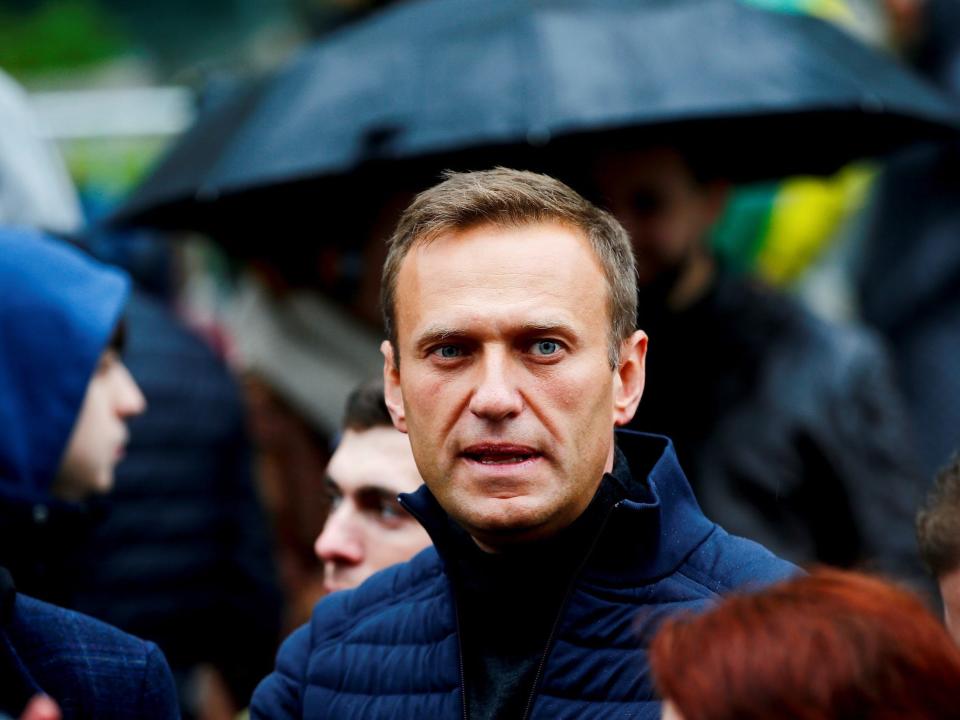
In 2011, Nikolai Tokarev, the CEO of the state-controlled petroleum company Transneft, accused Navalny of being a Western agent working for the CIA.
Navalny had just spent a year in the US studying at Yale University.
In response to Tokarev's claim, Navalny provided his wife with a list of names to contact if he suddenly vanished.
"They could arrest me at any moment," Navalny told The New York Times.
That same year, he founded the Anti-Corruption Foundation, or FBK for short.
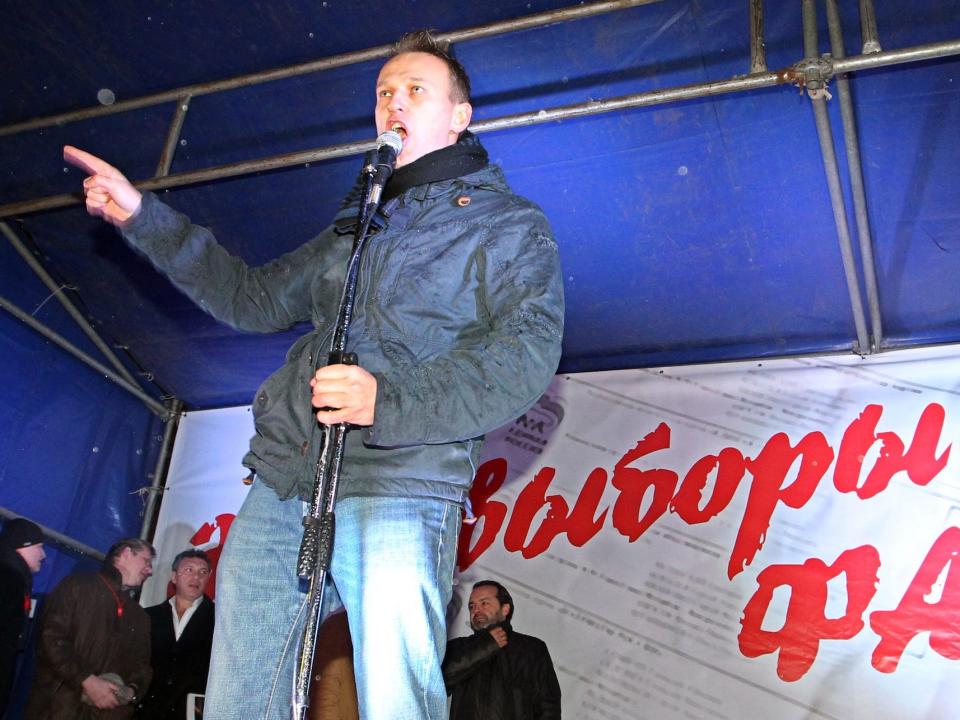
Through the foundation, Navalny hired several activists who continued exposing corruption. The foundation's investigations took aim at the authority and reputations of officials across Russia.
One of its most famous investigations was a short documentary on then-President Dmitry Medvedev's hidden wealth. The documentary played clips of his duck pond and huge shoe collection, according to the Conversation.
In response to the foundation's work, the Kremlin later labeled it a "foreign agent" and "undesirable."
During 2011 and 2012, Navalny's popularity grew as he campaigned to get people to vote for politicians running against Putin's party.
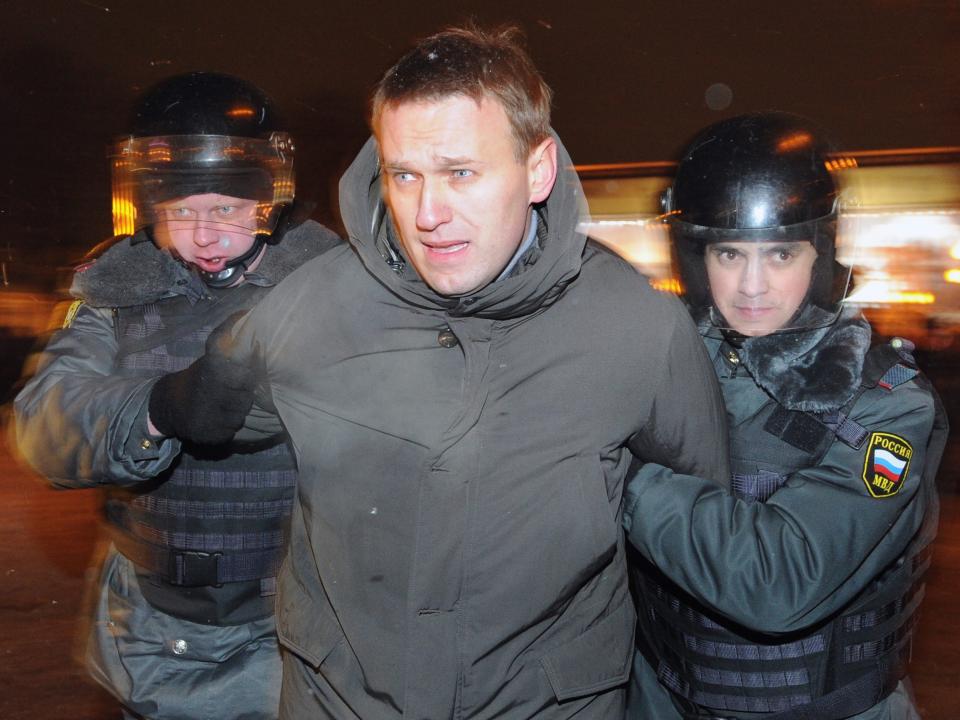
Navalny famously called United Russia the "Party of Crooks and Thieves."
There were widespread protests across Russia after United Russia still won the most seats.
In 2013, Navalny ran for mayor of Moscow.
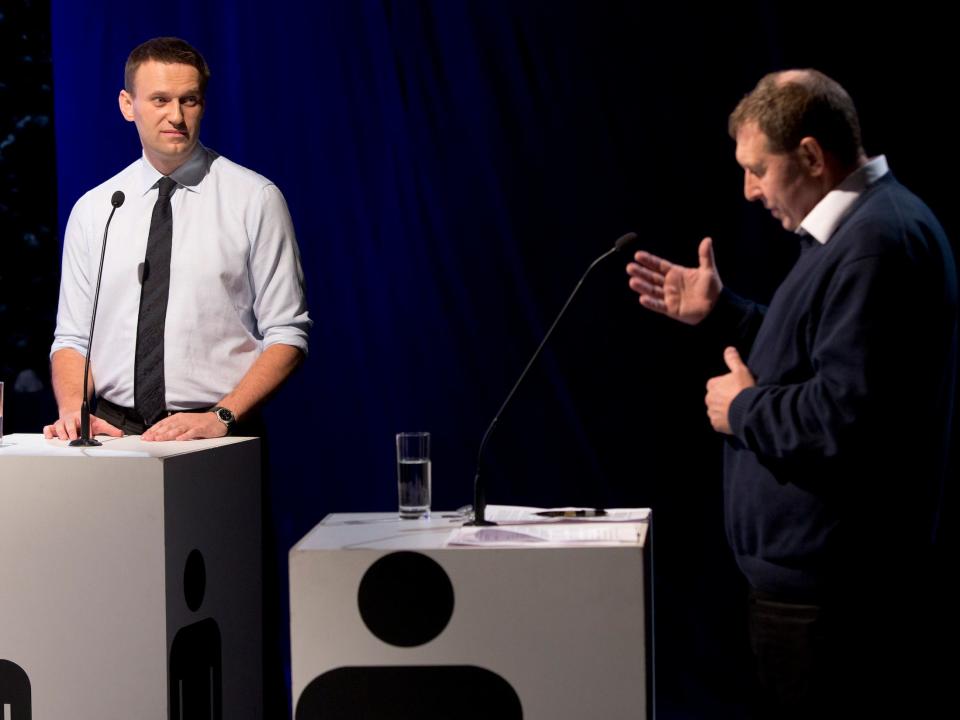
Navalny ran a grassroots campaign meeting with voters outside metro stations and passing out posters. He didn't win, but he came second out of six candidates after winning 27% of the vote.
It was the first time there had been an election for the city in nearly 10 years after mayoral elections were banned in Moscow in 2004.
He told Foreign Affairs he hadn't wanted to run for office but was left with little choice.
"When this system controls the courts, the prosecutor's office, and everything else on earth, you have to change the system itself, that's all," he said.
During his mayoral run, Navalny was also on trial for embezzlement.
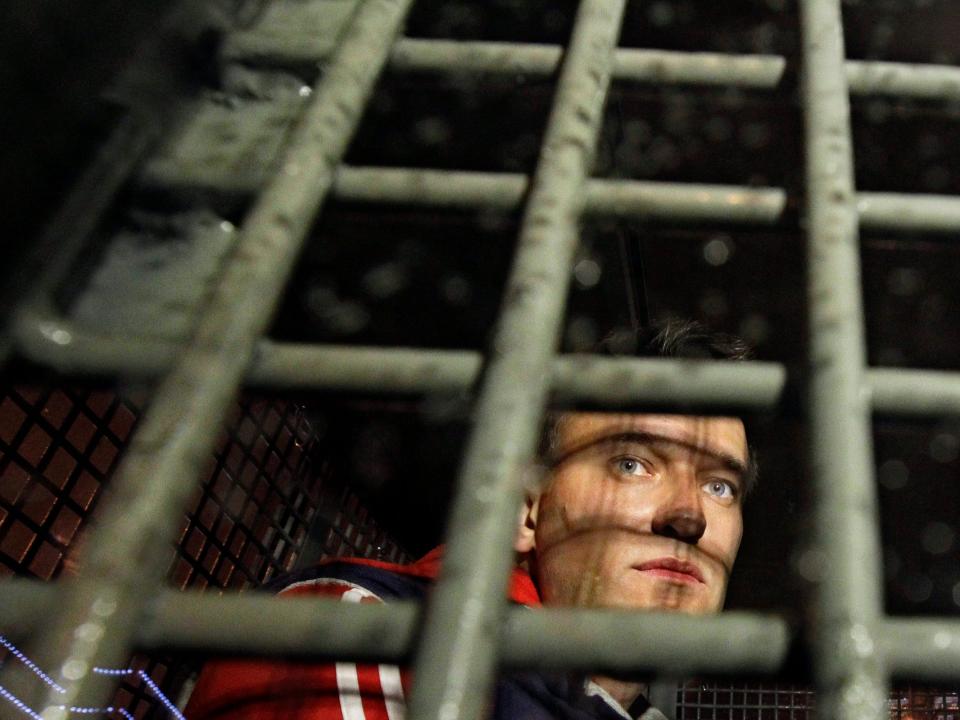
Navalny was accused of stealing about $500,000 from a timber company, despite the accusation being dismissed earlier after a European human rights court found procedural violations in the first trial.
The case was reopened, and Navalny was found guilty and sentenced to five years in prison in 2013.
Within hours, thousands of protesters — who faced the risk of being arrested — gathered in Moscow. His sentence was suspended and he was released the next day.
Despite the conviction and loss of the election, all of the publicity transformed Navalny from "a widely followed blogger and activist into a respected orator and politician," Joshua Yaffa wrote for Foreign Affairs.
The following year though, Navalny was accused of fraud alongside his younger brother, Oleg.
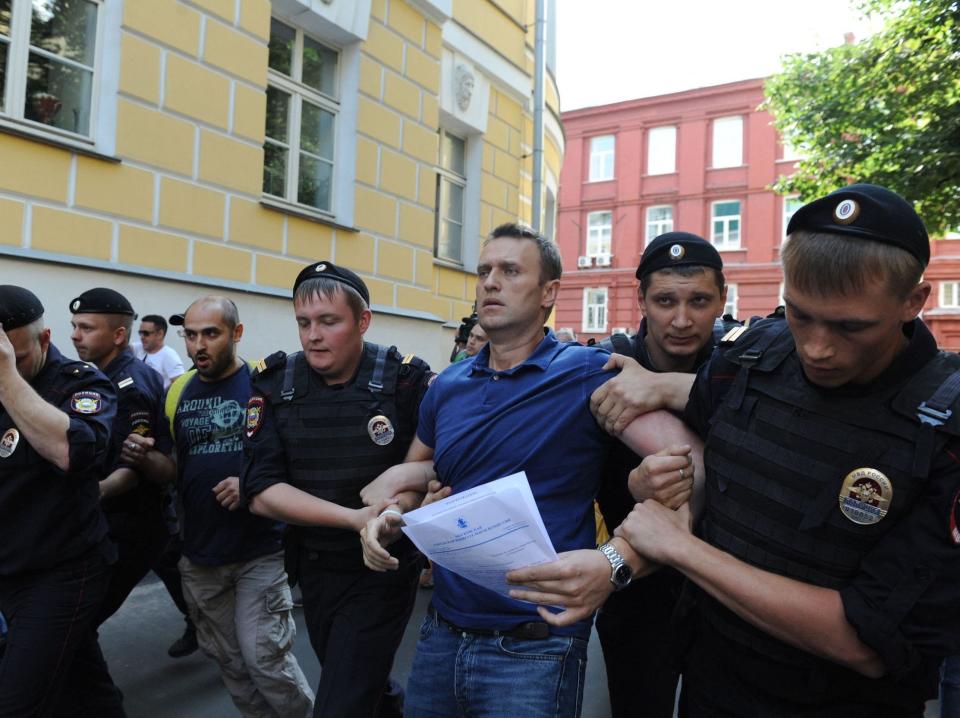
Navalny and his brother were accused of defrauding clients of a shipping company that they had started in 2008. Navalny was placed under house arrest — meaning no access to phones, internet, or other people.
During his house arrest, he kept busy by studying the internet — in particular, memes and viral hits.
Later in 2014, Navalny was convicted and given a suspended sentence of three and a half years. He was released in 2015 on the same day Time magazine released its list of the internet's most influential people.
Navalny was on the list next to Justin Bieber and former President Barack Obama.
Navalny's brother, Oleg, was convicted and given a three-and-a-half-year prison sentence.
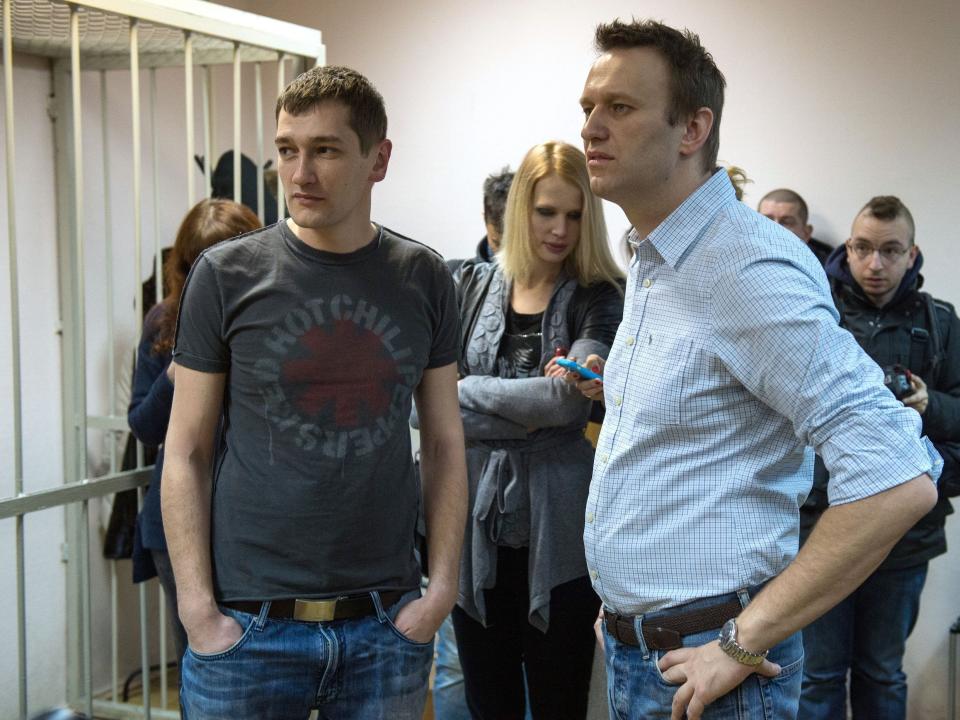
It was seen as a tactic by the Russian government to keep Navalny under control. By 2020, Navalny himself had been to jail 13 times.
The government didn't stop there. It froze his bank accounts and imposed hefty fines for hundreds of thousands of dollars, which he struggled to pay off.
His critics also pointed to the fact that Navalny didn't have a clear idea of what he wanted Russia's future to look like. In general, Navalny said he hoped Russia would "resemble a huge, irrational, metaphysical Canada," but his main focus was on loosening Putin's grip on the country.
In late 2016, Navalny announced his run for president for the 2018 election.
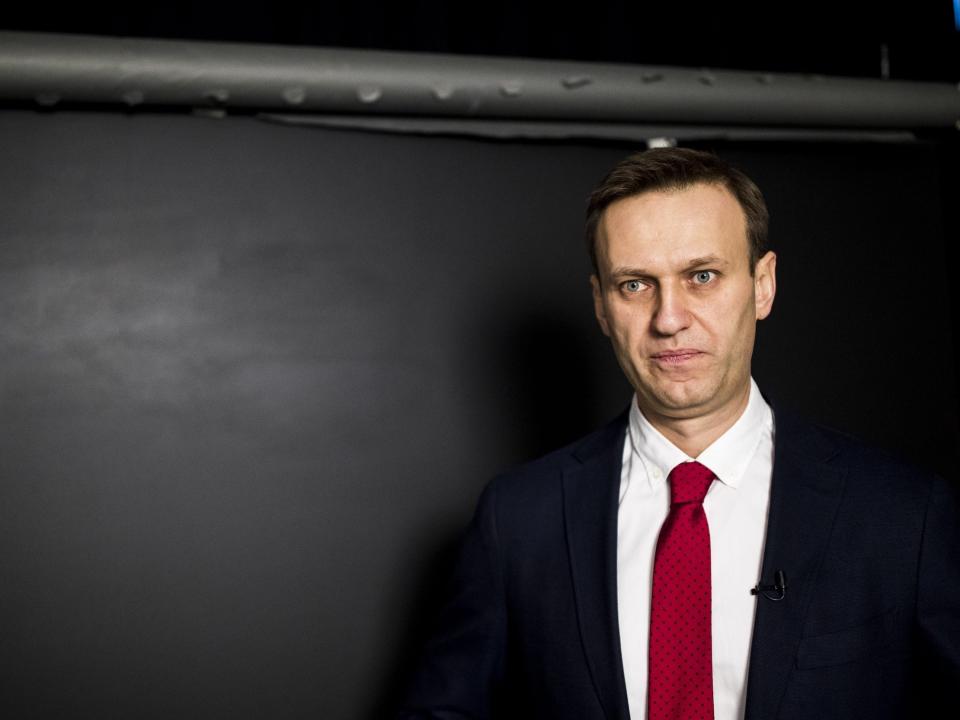
Navalny was implicitly barred from running because he was a convicted felon, but that didn't stop him. He opened more than 80 political campaign offices across Russia and called for a nationwide boycott of the election.
Putin was re-elected with 76.7% of the vote, according to Central Election Commission data.
In August 2020, Navalny was on a flight back from Siberia where he had been campaigning when he suddenly collapsed.
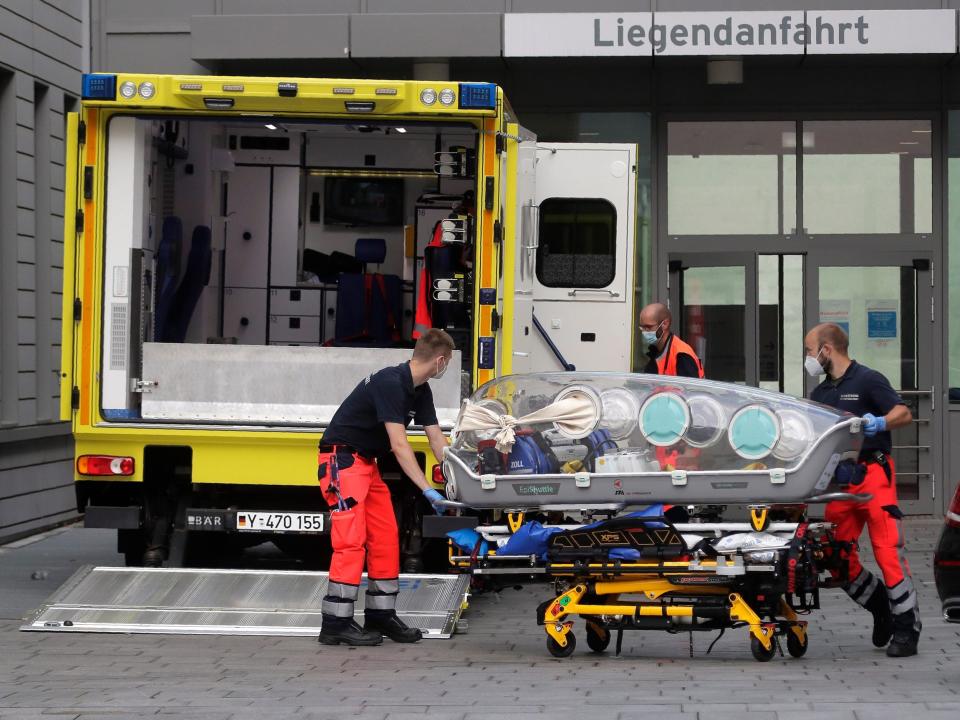
Navalny said Russian agents had applied a nerve agent called novichok to his underpants. This was later backed up by the German government, although Putin denied the accusation.
After international pressure, Navalny was allowed to be flown to Germany for treatment. He was in a coma for a fortnight. Even after he woke up, he had back pain and lost control of his legs.
Navalny claimed he later managed to trick a Russian agent into confessing by calling and pretending to be an official demanding to know why the assassination had failed.
In 2021, after he had recovered, Navalny decided to return to Russia.
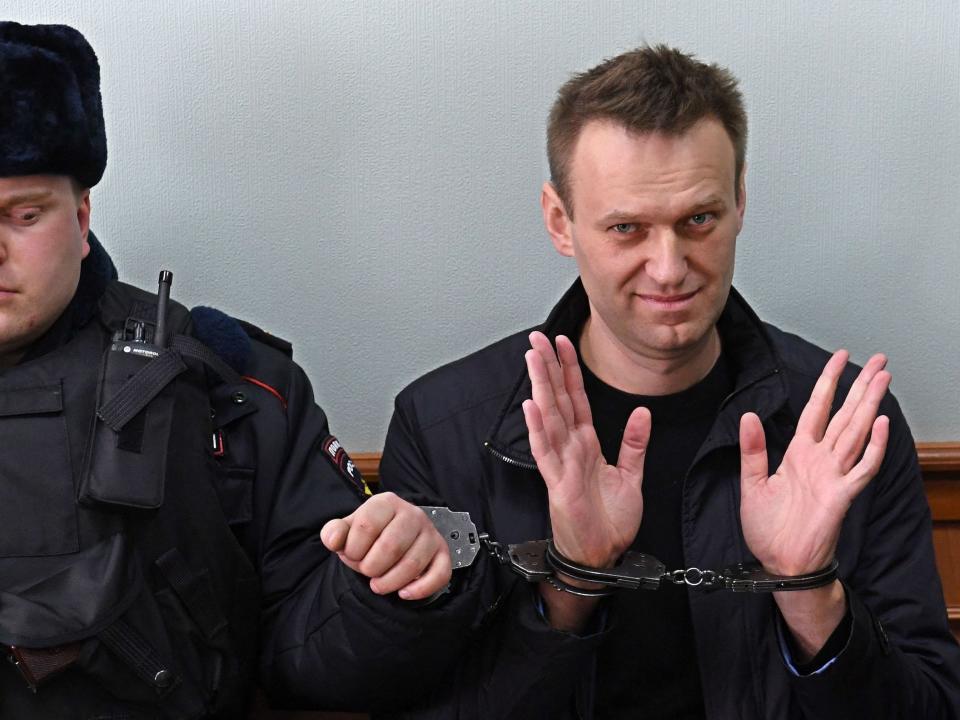
He was arrested as soon as he got off the plane. When news of his arrest got out, protests occurred across 180 different cities and towns.
His foundation then released a video tying Putin to a 190,000-square-foot, billion-dollar palace he secretly owned, which was built with taxpayer funds. In May 2023, Business Insider published annotated diagrams of the palace.
In June 2023, the Russian government reacted by banning the foundation and closing down 40 of its regional offices.
Navalny was sent to a penal colony.
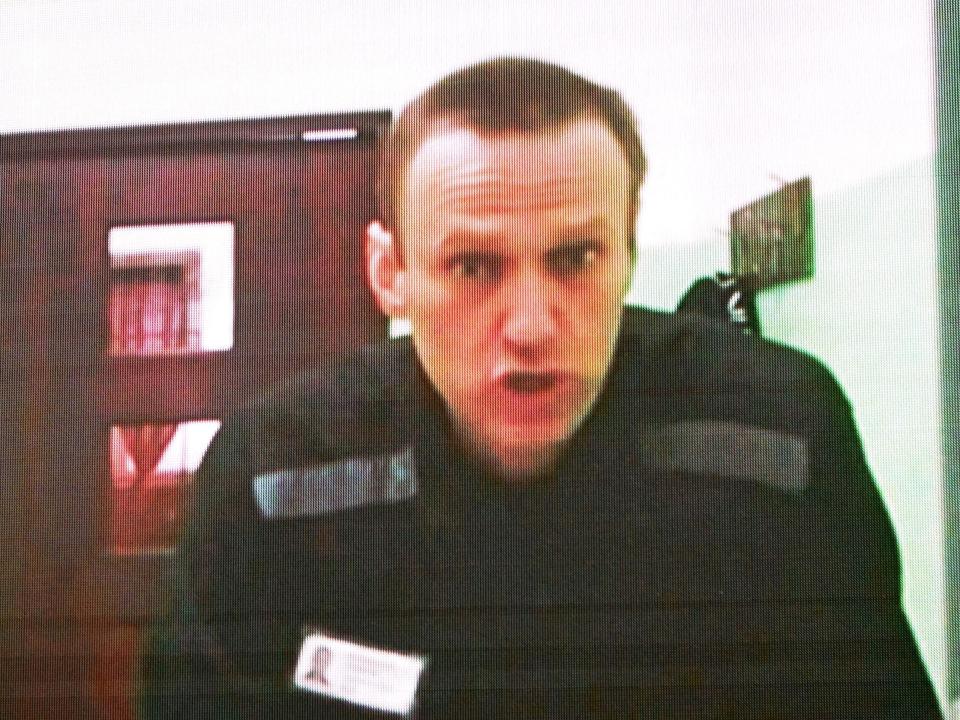
In 2021, Navalny was sentenced to almost three years in a penal colony. Another nine years were added in 2022 for additional charges, and he was regularly locked in solitary confinement.
In 2022, Navalny was on the cover of Time magazine, described as "The Man Putin Fears," and a CNN documentary about his life called "Navalny" won an Oscar for best documentary.
Navalny's colleague, Maria Pevchikh, who is exiled from Russia, spoke about why the documentary was significant.
"Putin wants Navalny to be irrelevant. We were aware that this film was life insurance," she told the Los Angeles Times.
Despite international support, Navalny was moved to IK-6 prison, a remote penal colony that's typically reserved for those accused of violent crimes.
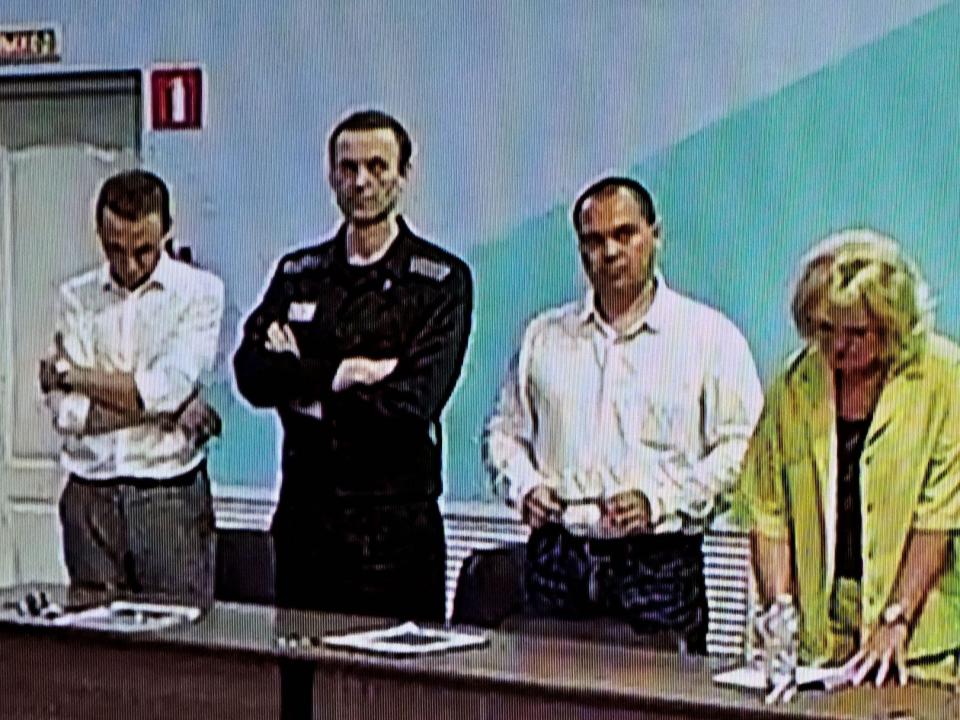
In August 2023, 19 more years were added to his sentence based on charges of extremism.
Navalny said Putin's main "gripe" with him was that he would be remembered for poisoning Navalny.
"We had Alexander the Liberator, Yaroslav the Wise, and we will have Vladimir the Underpants Poisoner," he said.
Navalny did not give up hope and told his allies "not to lose the will to resist."
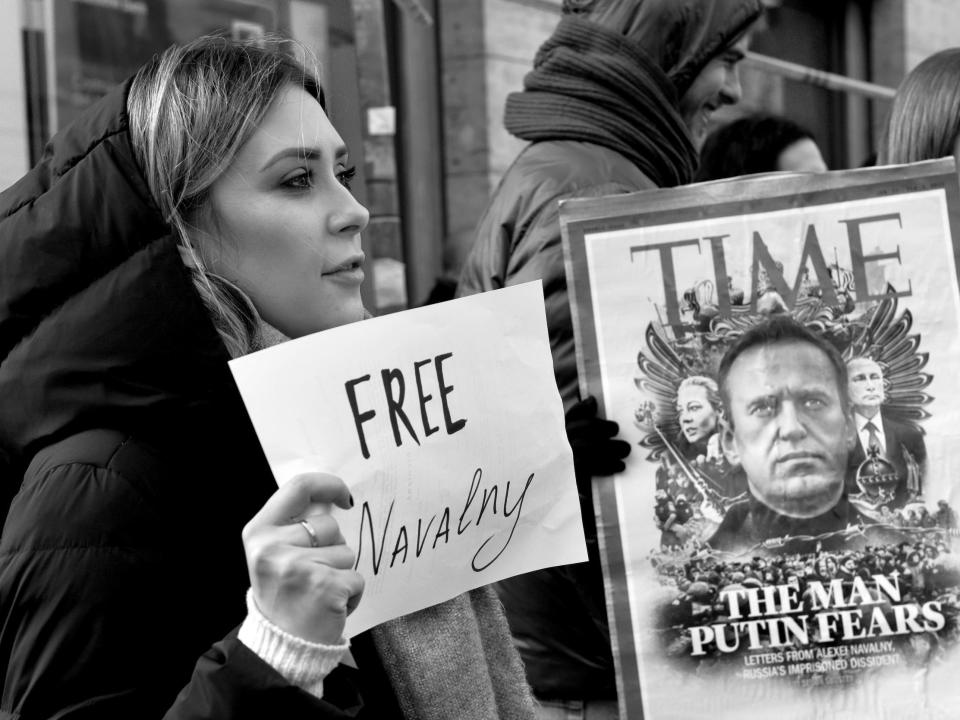
"I understand perfectly that, as many political prisoners, I'm serving a life sentence, which is measured by the length of my life or the length of life of this regime," he said.
In December, Navalny was found at a remote penal colony after his lawyers lost contact with him for three weeks.
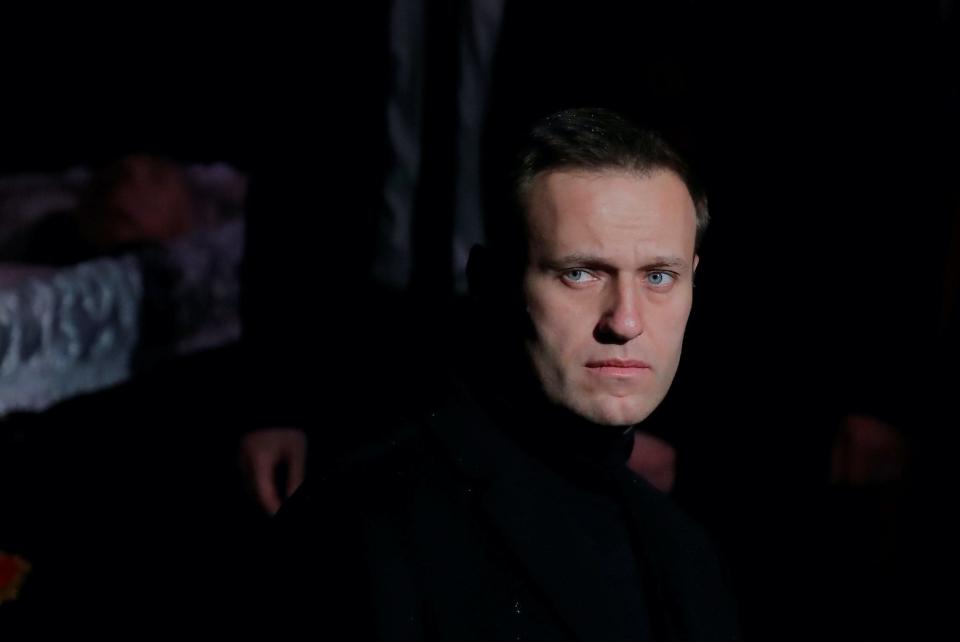
Navalny's lawyers lost contact with him in early December 2023, before locating him in the IK-3 prison, which is above the Arctic Circle.
His disappearance had sparked concerns particularly because he was ill, and needed an IV drip.
The prison is known to be one of the toughest in Russia, and most inmates there have committed serious crimes.
Navalny's chief of staff described his location as "the highest possible level of isolation from the world."
Russian authorities announced on February 16, 2024, that Navalny had died suddenly.
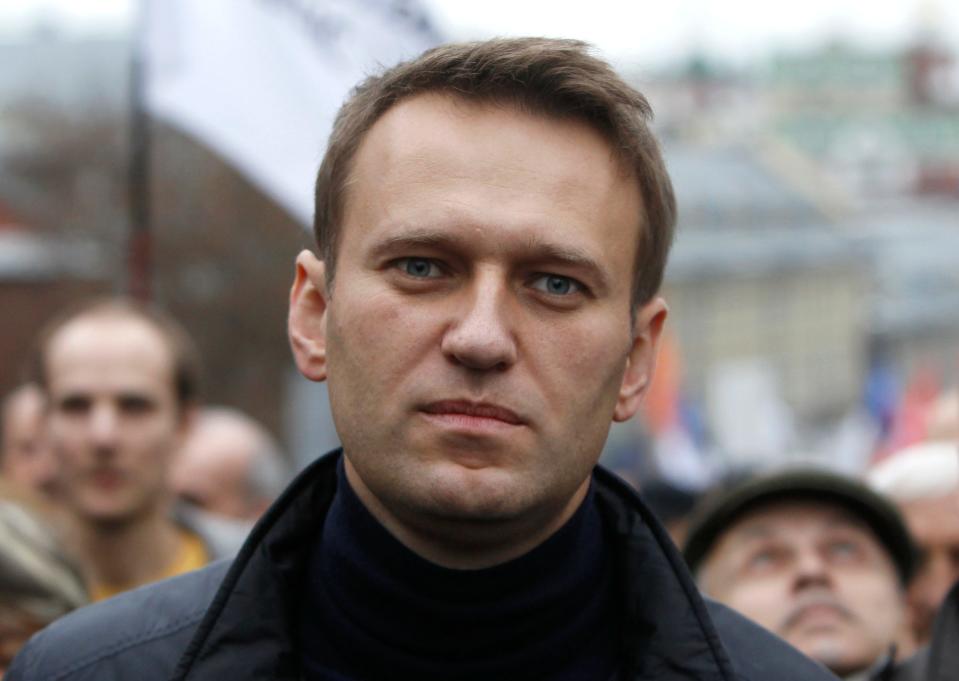
Russia's Federal Prison Service said on Friday that Navalny died suddenly after a walk.
It said he felt unwell and almost immediately lost consciousness, and that medics were not able to revive him.
A cause of death has not yet been established, it said.
The president of the European Council said the EU holds Russia responsible for his death.
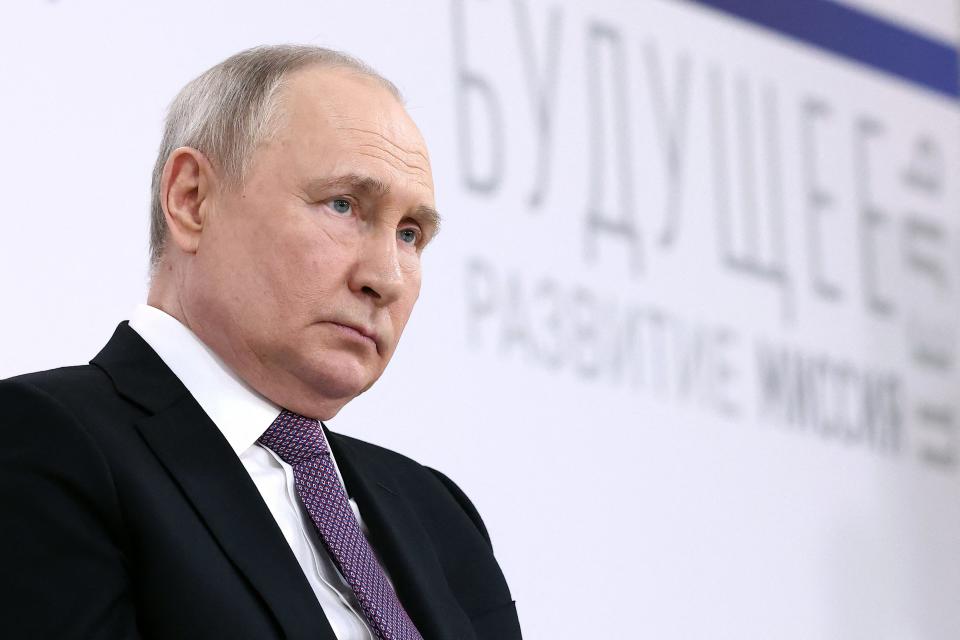
The president of the European Council, Charles Michel, said that the EU holds the Russian regime solely responsible for Navalny's death.
Michel said Navalny "fought for the values of freedom and democracy. For his ideals, he made the ultimate sacrifice."
The secretary-general of NATO, Jens Stoltenberg, said that "Russia has serious questions to answer."
Read the original article on Business Insider

